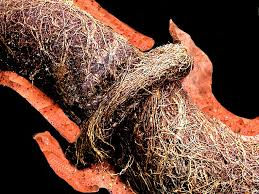Water Softener vs. Reverse Osmosis System: Which One Is Right for Me?
- revelationplumbing5
- Jun 23, 2025
- 4 min read

Water Softener vs. Reverse Osmosis System: Which One Is Right for Me?
If you’ve been wondering whether a water softener or a reverse osmosis (RO) system is the best choice for your home, you're not alone. Many homeowners across Pittsburgh and surrounding areas are realizing that their tap water may be affecting their appliances, plumbing, health, and even skin.
At Revelation Plumbing, we get this question all the time:“Should I install a water softener or a reverse osmosis system?”
Let’s break down what each system does, their differences, and how to know which one is right for your home.
🔍 What Is a Water Softener?
A water softener is designed to remove hard water minerals—primarily calcium and magnesium. These minerals cause scale buildup in your pipes, damage water heaters, and leave spots on dishes and dry skin after showers.
✅ Benefits of a Water Softener:
Prevents scale buildup in pipes and appliances
Extends the lifespan of your plumbing system
Helps water heaters run more efficiently
Softer skin, smoother hair, and cleaner laundry
Reduces soap and detergent use
💡 If you live in Pittsburgh, you’re likely dealing with moderate to hard water, which makes a water softener a great investment for protecting your plumbing system.

🧪 What Is Carbon Filtration—and Why We Recommend Installing a Water Softener with a Carbon Filter
If you're on municipal water in areas like Pittsburgh, West View, or Fox Chapel, your water is likely treated with chlorine or chloramine—disinfectants used to kill bacteria and viruses in public water supplies.
While these chemicals are effective for water treatment, they come with downsides:
Chlorine gives water a bad taste and odor
Chloramine is harder to remove and can damage rubber plumbing parts
Both can dry out your skin and hair
Long-term exposure is linked to potential health concerns
This is where a carbon filtration system comes in.
✅ What Carbon Filters Remove:
Chlorine
Chloramine
VOCs (volatile organic compounds)
Pesticides and herbicides
Bad taste and odor
Some pharmaceuticals and synthetic chemicals
Interested in learning the effects too much chloramine can have on pipes? Learn more here.
🔍 What Is a Reverse Osmosis System?
A reverse osmosis (RO) system is a water purification method that removes up to 99% of contaminants from your drinking water. These systems use a semipermeable membrane to filter out:
Lead
Chlorine
Fluoride
Nitrates
Arsenic
Microplastics
PFAS (forever chemicals)
Bacteria & viruses

Reverse Osmosis System
RO systems are typically installed at your kitchen sink or as a whole-house filtration system for high-end homes.
✅ Benefits of Reverse Osmosis:
Pure, clean, great-tasting drinking water
Removes harmful contaminants from your tap water
Ideal for households with infants, elderly, or health-conscious residents
Reduces the need for bottled water
💧 Think of a reverse osmosis system as a high-end filter for the water you consume, not necessarily for the water you wash or bathe with.
👷 Which Water Filtration System Is Right for You?
✅ Choose a Water Softener If:
You have hard water in your area (common in Pittsburgh)
You notice scale buildup on faucets, showerheads, or in your water heater
You want to protect your entire plumbing system and appliances
✅ Choose a Reverse Osmosis System If:
You’re concerned about what’s in your drinking water
You want to remove chemicals, heavy metals, and contaminants
You want the cleanest, safest water for drinking, cooking, baby formula, or pets
✅ Or—Do Both
Many homes benefit from both systems working together:
The water softener protects your plumbing and appliances
The RO system gives you high-quality drinking water right at your tap
It’s a common misconception that you have to choose between a water softener and a reverse osmosis system. The truth is, they’re not this or that—they serve very different purposes. A water softener treats all the water coming into your home by removing hard minerals like calcium and magnesium. This protects your plumbing system, water heater, and appliances while improving the feel of water on your skin and hair.
On the other hand, a reverse osmosis system is typically installed under your kitchen sink and is designed for drinking water only. It purifies water on a molecular level, removing contaminants like lead, fluoride, chlorine, and PFAS. That’s why many homeowners—especially those who value both plumbing protection and high-quality drinking water—choose to install both systems. With a water softener treating the whole house and a reverse osmosis system delivering ultra-pure water at your faucet, you get the best of both worlds.
👷 Get Expert Advice from Revelation Plumbing
Every home has different plumbing, water sources, and family needs. That’s why Revelation Plumbing offers free in-home water quality testing to determine what’s really in your water—and how we can help.
Whether you're in Pittsburgh, Cranberry, North Hills, or anywhere in Allegheny County, we’ll provide an honest, personalized recommendation and top-notch installation of:
Whole-house water softeners
Carbon filtration systems
Reverse osmosis systems
Combination setups tailored to your needs

💧 Call Revelation Plumbing for Your Pittsburgh Water Filtration System Installation
Not sure which water filtration system is right for your home? Give us a call today to schedule your free in-home consultation. We’ll test your water, walk you through your options, and help you find the perfect solution for your family’s needs. No pressure—just honest, expert advice from your local plumbing pros at Revelation Plumbing.
412-518-7170


.jpeg)






Comments